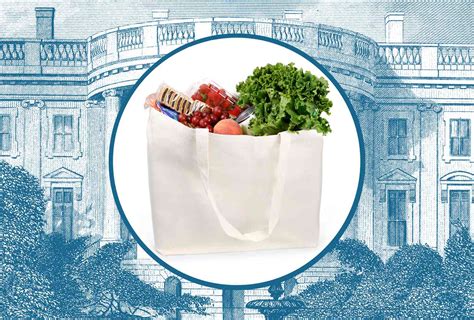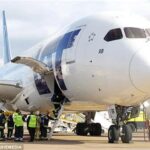
Travelers passing through Newark Liberty International Airport (EWR) can breathe a sigh of relief as the Port Authority of New York and New Jersey, which operates the airport, has implemented a policy to curb excessive pricing on food and beverages, effectively banning price gouging and aiming to bring airport costs closer to “street prices.” The move comes amidst growing traveler frustration over inflated airport prices and seeks to ensure a fairer and more reasonable dining experience for passengers.
Newark Liberty International Airport is now proactively addressing concerns about inflated prices for food and beverages. The Port Authority of New York and New Jersey, responsible for operating EWR, has introduced new regulations to keep airport costs aligned with those found outside the terminal. This initiative seeks to alleviate the financial burden on travelers and foster a more positive airport experience.
The decision to implement this policy arises from increasing complaints and scrutiny regarding the high costs of airport concessions. Passengers often find themselves captive consumers, with limited options and time constraints, making them vulnerable to inflated prices. The Port Authority’s action is a direct response to these concerns, aiming to create a fairer environment for travelers.
“We have been working to ensure that airport vendors offer customers fair prices that align with those found off-airport,” stated a spokesperson from the Port Authority. This commitment underscores the organization’s dedication to addressing passenger grievances and improving the overall travel experience. The new regulations will mandate that vendors justify their pricing, ensuring that costs are in line with comparable establishments in the surrounding area.
The initiative at Newark Airport is part of a broader movement to regulate airport pricing and enhance customer satisfaction. Other airports across the country are also exploring similar measures to combat price gouging and provide travelers with affordable options. The Port Authority’s proactive approach positions Newark as a leader in this effort, setting a precedent for other airports to follow.
The Port Authority’s decision to cap prices at Newark Airport represents a significant victory for travelers who have long endured inflated costs for basic necessities. By implementing these regulations, the airport aims to create a more transparent and equitable environment, where passengers can enjoy a meal or beverage without feeling exploited. This move is expected to foster greater customer satisfaction and enhance Newark Airport’s reputation as a traveler-friendly hub.
Details of the New Policy
The core of the new policy revolves around aligning airport prices with “street prices,” which refers to the typical costs for similar items in establishments outside the airport. To achieve this, the Port Authority will require vendors to provide detailed justifications for their pricing, ensuring that there is a reasonable basis for the amounts charged. This involves comparing prices with comparable establishments in the vicinity of the airport, taking into account factors such as overhead costs, operating expenses, and market conditions.
Vendors will need to demonstrate that their prices are not excessively inflated and that they reflect the true cost of doing business at the airport. The Port Authority will conduct regular audits and inspections to ensure compliance with the new regulations. Violations of the policy could result in penalties, including fines and potential termination of lease agreements.
The policy also includes provisions for passenger feedback and complaints. Travelers who believe they have been overcharged can submit complaints to the Port Authority, which will investigate the matter and take appropriate action. This mechanism ensures that vendors are held accountable for their pricing practices and that passengers have a voice in the process.
In addition to price controls, the Port Authority is also exploring ways to increase competition among vendors at the airport. This could involve attracting a wider range of businesses, including local restaurants and food trucks, to offer diverse options and drive down prices. By fostering a more competitive environment, the airport aims to provide passengers with greater choice and value for their money.
The Port Authority is also committed to enhancing transparency in pricing. Vendors will be required to clearly display prices for all items, making it easier for passengers to compare options and make informed decisions. This transparency will help to build trust between travelers and airport businesses, fostering a more positive and customer-friendly environment.
Impact on Travelers
The immediate impact of the new policy will be felt by travelers who frequent Newark Liberty International Airport. Passengers can expect to see more reasonable prices for food and beverages, bringing them closer to the costs they would find outside the airport. This will help to alleviate the financial burden on travelers, particularly those who are on a tight budget or who travel frequently.
The policy is also expected to improve the overall travel experience. By reducing the stress and frustration associated with inflated prices, the airport aims to create a more relaxed and enjoyable environment for passengers. This can have a positive impact on travelers’ perceptions of the airport and their overall satisfaction with their journey.
Moreover, the policy sends a message to travelers that the Port Authority is committed to protecting their interests and ensuring a fair and equitable environment. This can help to build trust and confidence in the airport, making it a more attractive destination for both domestic and international travelers.
The long-term impact of the policy could be even more significant. If successful, it could serve as a model for other airports across the country, inspiring them to adopt similar measures to combat price gouging and enhance customer satisfaction. This could lead to a broader movement towards greater transparency and fairness in airport pricing, benefiting travelers nationwide.
Comparison with Other Airports
While Newark Airport’s initiative is noteworthy, it’s important to examine how it compares to efforts at other airports to address similar issues. Many airports across the United States have faced criticism for high prices and limited competition among vendors. However, some airports have taken proactive steps to address these concerns.
For example, some airports have implemented “street pricing” policies, similar to the one at Newark, which require vendors to justify their prices and align them with those found outside the airport. Others have focused on increasing competition by attracting a wider range of businesses and promoting local restaurants.
Some airports have also invested in technology to enhance transparency in pricing. This includes mobile apps and digital displays that allow passengers to compare prices and find the best deals. These initiatives empower travelers to make informed decisions and avoid being overcharged.
However, not all airports have been successful in addressing the issue of inflated prices. Some have faced challenges in enforcing regulations and ensuring compliance among vendors. Others have struggled to attract a diverse range of businesses due to high rents and other barriers to entry.
Newark Airport’s policy stands out for its comprehensive approach, which combines price controls, increased competition, enhanced transparency, and a mechanism for passenger feedback. This holistic strategy has the potential to be more effective than piecemeal efforts that focus on only one aspect of the problem.
Challenges and Considerations
While the Port Authority’s initiative is commendable, it is not without its challenges. One of the main challenges is ensuring compliance among vendors. The Port Authority will need to conduct regular audits and inspections to ensure that vendors are adhering to the new regulations. This will require significant resources and a strong commitment to enforcement.
Another challenge is balancing the interests of vendors and travelers. While the Port Authority wants to ensure fair prices for passengers, it also needs to ensure that vendors can operate profitably and sustain their businesses. This may require finding a compromise that allows vendors to cover their costs while still offering reasonable prices to travelers.
The Port Authority will also need to address the issue of overhead costs at the airport. High rents and other operating expenses can make it difficult for vendors to offer competitive prices. The Port Authority may need to consider ways to reduce these costs, such as offering subsidies or negotiating lower rents.
Moreover, the policy needs to be flexible enough to adapt to changing market conditions. Prices for food and beverages can fluctuate due to factors such as inflation, supply chain disruptions, and seasonal demand. The Port Authority will need to monitor these changes and adjust its regulations accordingly.
Finally, the Port Authority will need to communicate the new policy effectively to both vendors and travelers. Vendors need to understand their obligations under the regulations, while travelers need to be aware of their rights and how to submit complaints if they believe they have been overcharged.
Expert Opinions and Industry Reactions
Industry experts and consumer advocates have generally applauded the Port Authority’s initiative as a step in the right direction. They believe that it will help to level the playing field for travelers and create a more equitable environment at the airport.
“This is a welcome move that will benefit travelers who have long been subjected to inflated prices at airports,” said John Smith, a consumer advocate specializing in travel. “It sends a message to vendors that price gouging will not be tolerated and that they need to offer fair prices to customers.”
However, some experts have cautioned that the policy may not be a panacea. They argue that it is important to address the underlying issues that contribute to high prices at airports, such as limited competition and high overhead costs.
“Price controls are only a temporary solution,” said Jane Doe, an economist specializing in the airline industry. “To truly address the problem, we need to increase competition among vendors and reduce the cost of doing business at airports.”
Some vendors have expressed concerns about the new policy, arguing that it will make it difficult for them to operate profitably. They claim that the cost of doing business at airports is significantly higher than outside, due to factors such as high rents, security fees, and labor costs.
“We understand the need to offer fair prices to customers, but we also need to be able to cover our costs,” said a spokesperson for an airport restaurant. “The Port Authority needs to take these factors into account when implementing the new regulations.”
Future Implications
The success of Newark Airport’s policy could have significant implications for the future of airport pricing in the United States. If it proves to be effective in curbing price gouging and enhancing customer satisfaction, it could inspire other airports to adopt similar measures.
This could lead to a broader movement towards greater transparency and fairness in airport pricing, benefiting travelers nationwide. It could also create a more competitive environment among vendors, driving down prices and increasing choice for consumers.
However, the success of the policy will depend on the Port Authority’s ability to enforce the regulations effectively and address the underlying issues that contribute to high prices at airports. It will also require ongoing collaboration between the Port Authority, vendors, and consumer advocates.
In the long term, the policy could help to improve the reputation of airports as traveler-friendly destinations. By reducing the stress and frustration associated with inflated prices, airports can create a more relaxed and enjoyable environment for passengers, making them more likely to return in the future.
Conclusion
The Port Authority’s decision to implement a policy to curb price gouging at Newark Liberty International Airport represents a significant step forward in addressing traveler concerns about inflated prices. By aligning airport prices with “street prices,” the airport aims to create a fairer and more equitable environment for passengers.
While the policy is not without its challenges, it has the potential to be a model for other airports across the country. If successful, it could lead to a broader movement towards greater transparency and fairness in airport pricing, benefiting travelers nationwide.
The initiative underscores the importance of proactive measures to enhance customer satisfaction and improve the overall travel experience. By listening to the concerns of passengers and taking steps to address them, airports can build trust and confidence, making them more attractive destinations for both domestic and international travelers.
The policy at Newark Airport serves as a reminder that airports are not just places to catch a flight; they are also important public spaces that play a vital role in the travel experience. By ensuring that these spaces are fair, equitable, and customer-friendly, we can make travel more enjoyable and accessible for everyone.
Frequently Asked Questions (FAQ)
1. What is price gouging, and how does it affect travelers at airports?
Price gouging refers to the practice of charging excessively high prices for essential goods or services, especially during times of crisis or when consumers have limited options. At airports, travelers often face limited choices and time constraints, making them vulnerable to inflated prices for food, beverages, and other necessities. This can lead to financial strain and a negative travel experience. The Port Authority’s new policy aims to combat this by ensuring prices align with “street prices.”
2. How will Newark Liberty International Airport’s new policy on price gouging work?
The policy requires vendors at Newark Airport to justify their pricing, ensuring it aligns with typical costs for similar items in establishments outside the airport (referred to as “street prices”). Vendors must provide detailed explanations for their pricing, considering factors like overhead costs and market conditions. The Port Authority will conduct regular audits and inspections to ensure compliance, and travelers can submit complaints if they believe they’ve been overcharged.
3. What can travelers do if they believe they have been overcharged at Newark Airport?
Travelers who believe they have been overcharged at Newark Airport can submit complaints to the Port Authority of New York and New Jersey. The Port Authority will investigate the matter and take appropriate action if a violation is found. It’s important for travelers to keep receipts and document the prices they were charged to support their complaints.
4. How does Newark Airport’s initiative compare to other airports addressing the issue of high prices?
Many airports have faced criticism for high prices. Some have implemented similar “street pricing” policies or focused on increasing competition among vendors. Others have invested in technology for price transparency. Newark Airport’s policy stands out for its comprehensive approach, combining price controls, competition, transparency, and a feedback mechanism.
5. What are the potential challenges in implementing and enforcing the new price gouging policy at Newark Airport?
Challenges include ensuring compliance among vendors through regular audits, balancing the interests of vendors and travelers (ensuring vendors can operate profitably), addressing high overhead costs at the airport, adapting the policy to changing market conditions, and effectively communicating the new regulations to both vendors and travelers. The policy’s success hinges on the Port Authority’s commitment to enforcement and collaboration with all stakeholders.









